Continued losses dog the group, but Ocado could make a valuable prospect for a big player seeking automation and online grocery dominance
Ocado was the talk of the City last week as its share price surged on rumours that US tech giants were eying up a bid for the loss-making grocery pioneer.
News of bid interest, broken by The Times on Wednesday last week, saw Ocado’s shares shoot up 32.5% after the report named Amazon as a potential suitor alongside other US “technology heavyweights”.
The Times was confident enough to name banks working on a prospective bid as Goldman Sachs and JP Morgan. The report has been met with wall of silence from all players.
Bid interest would not be a huge surprise based on Ocado’s post-pandemic share price plunge. Slowing UK sales and continued losses have seen the stock drop more than 85% from February 2021 highs to its lowest level since 2017 in early June.
“It’s possible Amazon may do something unique like opening ‘Amazon Ocado’ stores in select locations”
Brittain Ladd, former Amazon exec
The Times mentioned an 800p per share bid price and Ocado is currently trading almost 300p short of that, having fallen back around 18% since last week’s peak.
Even if nothing is imminent, Ocado represents an intriguing prospect for multinational giants given its headstart on online grocery and automation.
Indeed, it would not be the first time Amazon has considered the company.
Former Amazon executive Brittain Ladd tells The Grocer in 2016 he recommended the e-commerce behemoth “needed to make a big move in grocery” and buy either Ocado Group or Whole Foods Market. Amazon opted for the latter, acquiring Whole Foods the following year.
- Ocado enjoyed a 32.5% share price bump last week following reports of Amazon’s interest.
- It took the shares back to the level they were at in February, before it announced a pre-tax loss of £501m.
- The group’s annual share price low of 342p in early June was its lowest level since December 2017.
- The shares remain 42% down year on year and 87% down from their £28 peak in February 2021.
Amazon could benefit from Ocado’s robot picking grid technology, used not just within its own retail operations but also by major supermarkets such as Kroger in the US, Coles in Australia, Casino in France and Aeon in Japan.
While optimised for picking groceries, the tech can readily be adapted to pick any small items – ideal for many of the products sold on Amazon.
“It would be easier and faster to acquire Ocado versus attempting to duplicate what Ocado created,” Ladd says.
And anyway, Amazon has major ambitions in online grocery. It could “use it as a way into grocery at scale” he adds.
Read more:
-
‘No excuse’ for Amazon’s shocking first outing on supplier ranking
-
Amazon cheaper than Asda and Tesco for online food shop
-
Ocado gets vote of confidence with ‘much better outlook’
-
Alex Freudmann, M&S’s man leading the Ocado turnaround
An acquisition of Ocado would come with half of online supermarket Ocado Retail, its joint venture with M&S.
“Amazon might want to acquire Ocado for its data and UK online market share, which would help it make greater inroads in the grocery sector,” says Miya Knights, co-author of a book about Amazon. “It would also likely make use of Ocado’s data to refine its own Whole Foods and Fresh stores proposition.”
Between 2005 and 2014, M&S sold products on the Amazon marketplace, “so there may be some residual feelings – both good and bad – on the part of M&S”, Knights notes.
The “competitive data” of other major supermarkets that use Ocado’s tech would also “add an attractive bonus” Knights says. “But I’m not so sure those retailers would be so pleased,” she adds.
Ocado’s other potential suitors
Amazon is not the only player understood to be interested in Ocado. Former Amazon senior executive Brittain Ladd sees at least 12 that could benefit from the acquisition.
Target: the US retailer “could leverage Ocado for its own grocery needs and also sell access to Ocado to other retailers”.
Kroger: Ocado’s own partner is “in severe danger of being disrupted”. “They need to acquire Ocado as it will benefit the merger with Albertsons.”
Instacart: it would be a “game-changer and its “valuation would double if not triple”.
Dollar General: it “understands the value of groceries” and would find an acquisition “transformational”.
Walmart: it would be a “brilliant strategic move”.
TikTok: it “should be a priority for the social media giant” as it offers a route to market.
Microsoft: it “fits their focus on retail”.
Google: it “differentiates the company”.
Meta: “it would be a masterstroke”.
Autostore, Door Dash or Uber: an acquisition would also be a “smart move”.
The rights to that data could prove complicated. Rivals such as Kroger could walk away from using an Amazon-owned Ocado’s tech, says Ladd.
“It’s plausible Amazon would end the relationship with Kroger, which may lead to legal action. Or Amazon may choose to keep Kroger as a customer but that will give Amazon access to Kroger’s data, which may cause Kroger to end the relationship with Ocado.”
On the other hand, Amazon could assure Ocado clients it would not peek at their data – something the many retail users of Amazon’s cloud computing arm AWS seem content with.
Ladd suggests a purchase of Ocado could lead to another acquisition. “Assuming Amazon could get regulatory approval, it’s plausible it could acquire Ocado and M&S together. It probably won’t happen but you can see the value to Amazon if it did,” he says.
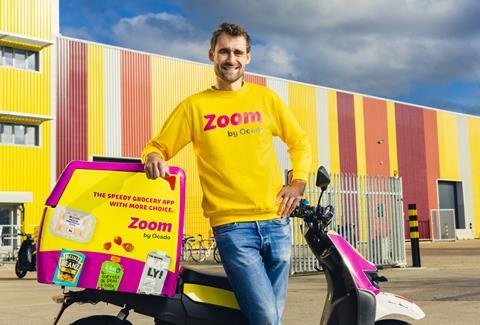
With Ocado in its ownership, what would Amazon do next?
Amazon’s grocery ambitions both online and offline suffer from a lack of locations close to shoppers, which isn’t an issue for incumbent rivals.
An Ocado acquisition would allow it to more swiftly “open CFCs throughout the US” and beyond, says Ladd.
There is also Ocado’s rapid grocery proposition Zoom, which delivers groceries from mini-CFCs in an hour.
Amazon could “open hundreds and possibly thousands of Ocado Zoom facilities for more hyperlocal same-day delivery of groceries”, Ladd adds, “instead of building stores and going head to head against entrenched competitors”.
Smaller grocers could be given use of Ocado’s platform for free in exchange for Amazon using their locations to fulfil kerbside and online orders, Ladd suggests.
Brand perceptions
With its stake in Ocado Retail, an important decision would lie in “whether to maintain the Ocado brand or absorb it into the Amazon ecosystem”, says Knights.
“I’m not sure any assimilation would be enough to strengthen Amazon’s brand perception and level of trust when it comes to food, while maintaining the Ocado brand won’t necessarily give it the halo effect it would probably be looking for among grocery shoppers,” she says.
However, the association with Ocado and by extension M&S could boost consumer perceptions about Amazon and quality food.
“It’s also possible Amazon may do something unique like opening ‘Amazon Ocado’ stores in select locations,” Ladd adds.

Amazon would also need to consider who best to lead Ocado. “They must replace Tim Steiner,” Ladd says. “My vote is that Tony Hoggett become CEO of Ocado.”
However, there are obstacles. Most obviously competition authorities would “likely be very interested”, according to Bernstein. “Given the difficulties Deliveroo had getting investment from Amazon in 2020, we think the UK and US competition authorities would take a significant interest in any acquisition, particularly in terms of data sharing.”
There is also the issue of price. Leaving aside the stunted sales growth of its UK joint venture with M&S, Ocado’s core solutions business is in a tricky period between the fanfare of global expansion and benefitting from that scale, as it pours cash into building the CFCs it has promised retail partners across the globe.
The share price malaise over the past 18 months partly reflects this gap between the excitement of partnerships being signed and the earnings benefit from scaling them up.
If there is interest in Ocado – and at its current share price level it would be hasty to rule it out – a question for the group and its shareholders would be why cash out now?
“Ocado has a large number of long-term shareholders who may be slightly disappointed by £8, as we think this significantly underestimates the future cashflows of the business,” says Bernstein.







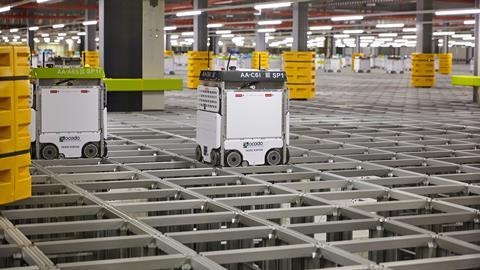
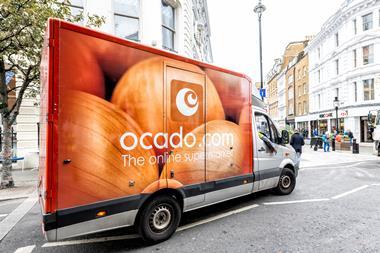
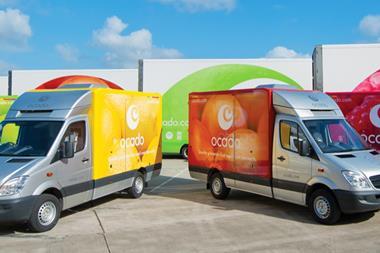


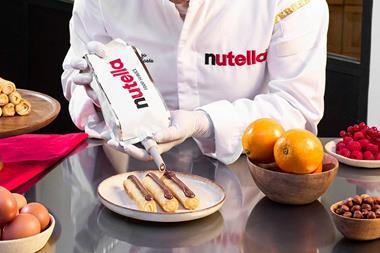
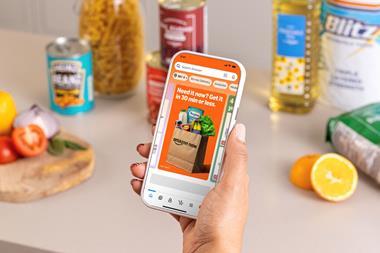






No comments yet